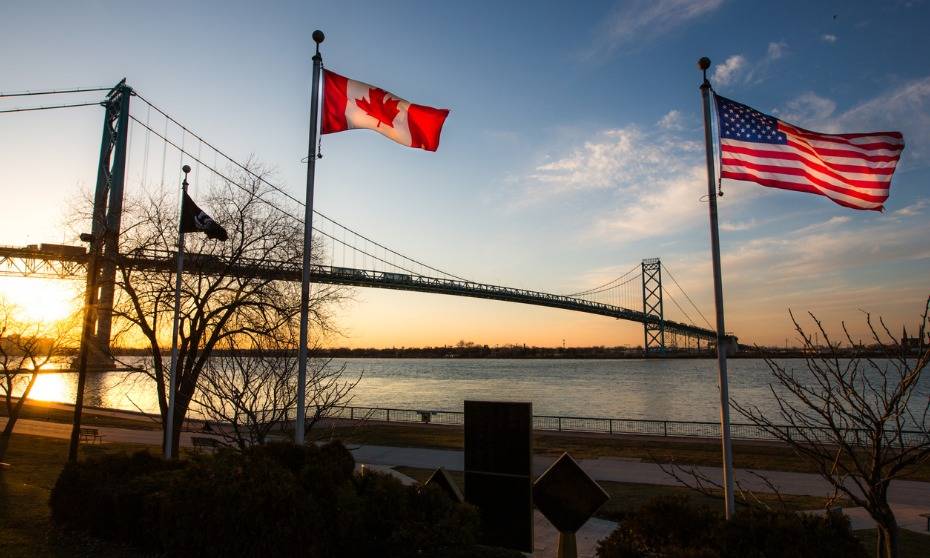
Regulations give enhanced power to U.S. border agents

A new border-security arrangement between the U.S. and Canada would give enhanced powers to U.S. border service members on Canadian soil and could immunize them from Canadian law, if they violate the legal rights of Canadians, says a Canada U.S. business immigration and international business lawyer.
Implemented on Augusts 15, the Agreement on Land, Rail, Marine, and Air Transport Preclearance between the United States and Canada allows law-enforcement officers from both countries to conduct preclearance of travellers and goods, on the soil of the other country, when those travellers and goods are bound for their own. The Preclearance Act was enacted in 2016 and the regulations were published in June.
Although the agreement states U.S. officers must follow Canadian law, the preclearance act precludes any “action or civil proceeding” against an officer for actions carried out in the exercise of their powers,
says Henry Chang, partner at Dentons in Toronto.
According to the agreement, those actions or civil proceedings must be brought against the U.S. government itself. But the State Immunity Act gives the U.S. immunity to any Canadian court unless there is a death, personal bodily injury or damage to or loss of property, meaning Charter violations such as warrantless searches of a Canadian’s electronic devices or discrimination based on race, religion, country of origin or sexual orientation, would fall outside the limited scope of Canada’s available recourse, says Chang.
“Even though it says that the law is subject to the charter and the Human Rights Act and all these other Canadian statutes, unfortunately, the language of the act makes clear that there's no ability to enforce, in most cases. And that's a bit of a concern,” says Chang.
“We're not saying they're going to do anything wrong. But the fact is, the law doesn't actually have any process in place to deal with it, if it ever did happen,” he says.
During a hearing on the preclearance act, Privacy Commissioner Daniel Therrien told the Senate Standing Committee on National Security and Defence, that the State Immunity Act made the section “hollow” that requires U.S. preclearance officers respect Canadian legal rights.
The preclearance act replaces an older version, enacted in 1999, as part of a 2011 joint-initiative by then Prime Minister Stephen Harper and U.S. President Barack Obama, called Beyond the Border: A Shared Vision for Perimeter Security and Economic Competitiveness.
A change from the 1999 act are the nature of the obligations Canadian travellers have, to answering questions posed by preclearance officers, Chang says. Questions officers ask are not required to be “reasonable or even relevant,” and unless the traveller withdraws their application for admission, they have a positive obligation “to truthfully answer any question,” whereas travelers under the old preclearance act were only required to answer truthfully if they volunteered an answer to an officer’s question, he says.
The new agreement makes it a criminal offence to lie, with the consequence of either a $5,000 fine and summary conviction for making a false statement or a two-year jail-term for wilfully obstructing a U.S. preclearance officer, Chang says.
“Now, it actually says you must answer every question no matter what, whether it's relevant, or whether it's potentially discriminatory under Canadian law, you have to answer the question, and you must do it truthfully,” he says.
Another change from the old regime is that travellers can no long withdraw applications for admission unconditionally, says Chang. Canadian travellers, previously, had that right to leave the preclearance area and could only be detained if the preclearance officer suspected they had committed a Canadian criminal offence, for example, possessing illegal narcotics, he says.
While the new act allows them to leave, travellers have obligations to truthfully answer questions meant to determine their reason for withdrawing and comply with “any other direction” given in accordance with the act, Chang says. Officers could detain those who withdrew their application until they told the officer why and refusal could be wilful obstruction and a criminal offence, he says.
“This can be a problem because for you to withdraw, now you need to actually satisfy them that you've addressed that the reason why you're doing so, which will quite possibly bring you back to the question didn't want to answer in the first place,” Chang says.
A traveller could also run into obstruction if they refuse to offer their cell-phone or laptop password, says Chang.
“In terms of this particular statute, it affects everyone. It affects individuals and it affects corporate business travellers as well. So it's something whether I'm going on vacation at Disneyland, or I'm going to business meeting, the same rules apply to all of us.” Chang says.